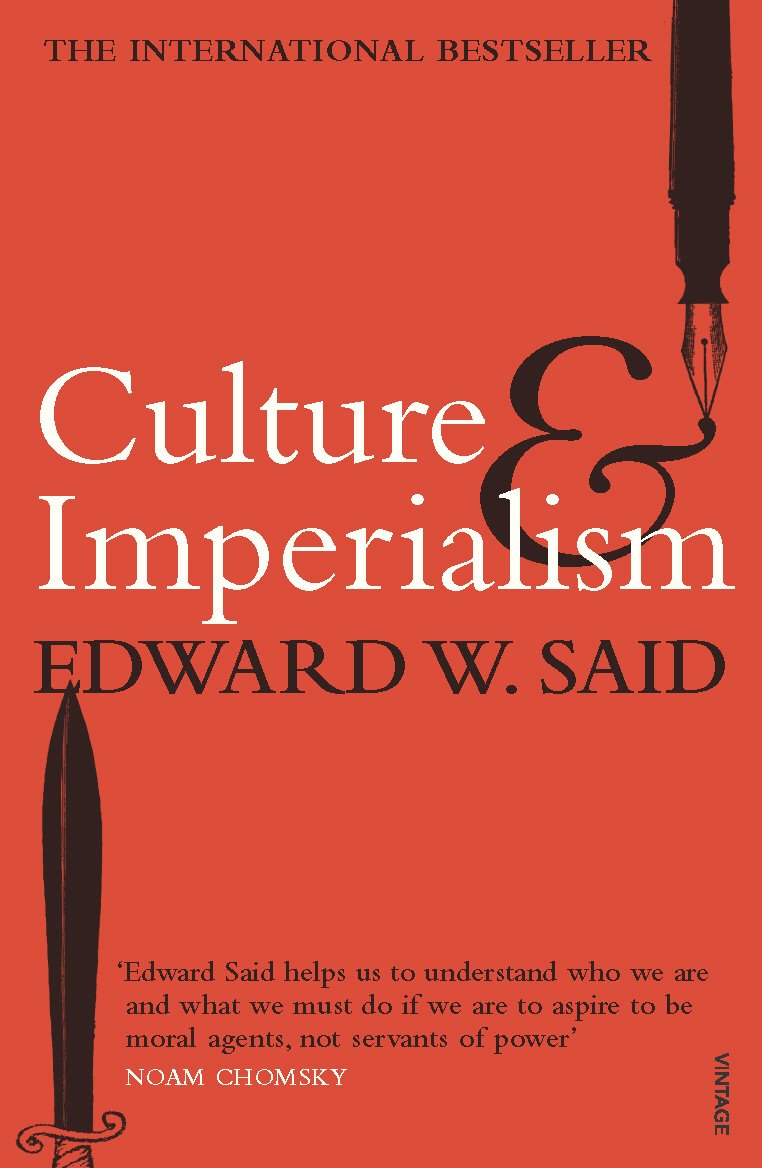Culture and Imperialism
- Brand: Unbranded

Description
In this way, the exile represents “an experience of crossing boundaries and charting new territories in defiance of the classic canonic enclosures, however much its loss and sadness should be acknowledged and registered” (317).
Unfortunately, sometimes, I got the impression that he was saying, "Look how smart I am" when enumerating examples, and several of his points were repeated many times, weakening the impact of the book.From Jane Austen and Charles Dickens, to Rudyard Kipling and Albert Camus, Saïd insists that these works are aware of the fact of empire, and that, at best, they simply take it for granted (the latter two were much more vocal about how they felt, of course). He defines imperialism as “thinking about, settling on, controlling land that you do not possess, that is distant, that is lived on and owned by others” ( CI, 7). You can change your choices at any time by visiting Cookie preferences, as described in the Cookie notice. He is the author of twenty-two books which have been translated into 35 languages, including Orientalism (1978); The Question of Palestine (1979); Covering Islam (1980); The World, the Text, and the Critic (1983); Culture and Imperialism (1993); Peace and Its Discontents: Essays on Palestine and the Middle East Peace Process (1996); and Out of Place: A Memoir (1999).
The perfect example of what I mean is to be found in Jane Austen’s Mansfield Park , in which Thomas Betram’s slave plantation in Antigua is mysteriously necessary to the poise and the beauty of Mansfield Park, a place described in moral and aesthetic terms well before the scramble for Africa, or before the age of empire officially began” (59). As the connection between culture and empire, literature has "the power to narrate, or to block other narratives from forming and emerging", which might contradict the colonization of a people. But Said in his magnus opus asks the question: “what if imperialism was not simply a political project born of European realpolitik, but a whole encompassing form of thought and more importantly cultural production, one which very much still lingers in our collective unconscious and very ontology of the quotidian? and all kinds of preparations are made for it within a culture; then, in turn, imperialism acquires a kind of coherence, a set of experiences, and a presence of ruler and ruled alike within the culture.This was an unexpected pleasure, as I'd never read Said before and was fearful of drowning in jargon. He makes countless citations of literary work from different parts of the world, and he analyzes the literature so seriously that it almost seems like he’s the only one in class paying attention. He thus can argue that imperialism has survived the disappearance of the colonial empires and devotes the last section of Culture to its workings in the United States since World War II. Primarily considering British and French imperialist works, "contrapuntal" readings and literary nods are given to Chinua Achebe, Salman Rushdie, Wole Soyinka, Aime Cesaire, Walter Rodney, Jamaica Kincaid, Nadine Gordimer, and the mainstay of Frantz Fanon.
Now, YMMV on this, especially if you don’t have the misfortune to come from a place that has a violent revolution in its recent past. Forged from a partnership between a university press and a library, Project MUSE is a trusted part of the academic and scholarly community it serves. That is not to say that Saïd condemns European culture as irredeemably racist, or heaps scorn upon the aforementioned works. For Said, The critic’s function is both enhanced and focused by his or her capacity to be in the world.kim absolutely has its place within this discourse, but--as ahmad notes--it's an odd move to treat kipling as though he holds the same position in the literary canon as those authors when that simply isn't the case? Readers accustomed to the precision and elegance of Edward Said's analytical prowess will not be disappointed by Culture and Imperialism . He gives an example from Kipling’s Kim, where Kipling has the widow of Kula says, when a District Superintendent of Police walks by, that These be the sort to oversee justice. He later theorized that discourse is a medium through which power relations produce speaking subjects.
- Fruugo ID: 258392218-563234582
- EAN: 764486781913
-
Sold by: Fruugo
